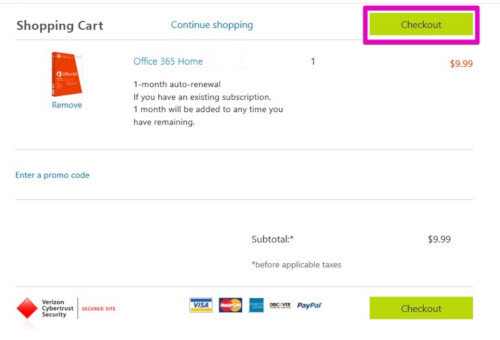Shopping cart software can be defined as a piece of eCommerce software that enables customers to add items to a virtual shopping cart on a website.
The customer can view the online shopping cart to see what products have been added to it, and can choose to add more products or remove them.
Once the customer has finished selecting items they would like to purchase, the shopping cart software then calculates the total amount of the order, including the shipping and handling charges and any other monies due, such as taxes and provides a secure way of paying for the products in a virtual checkout.
The owner of the eCommerce website is then notified of the purchase so they can start fulfilling the order by packing and shipping the items.
Types of Shopping Cart Software
Generally speaking, there are three main types of shopping cart software:
- Custom shopping cart software
- Open source shopping cart software
- Hosted eCommerce platforms
Custom Shopping Cart Software
Custom shopping cart software is eCommerce software that is developed specifically for you, based on your particular business requirements.
Benefits custom shopping cart software Custom shopping cart software is built with all of your desired eCommerce features, highly optimized for performance, increased conversions and functionality that reduces shopping cart abandonment.
- With custom shopping cart software, you own the software
- Any investment that you make in the development of custom shopping cart software is preserved and can be built upon and grow with your business
- You have the freedom have your shopping cart work exactly the way you would like
- No monthly hosted shopping carts fees or costs to pay
- Better, personalized support
Disadvantages of Custom Shopping Cart software: A couple of possible drawbacks of custom shopping cart software is that the start-up time may take longer and the initial costs will be higher. However, the initial development cost is dramatically offset compared to hosted shopping cart software, by the increased sales and savings within the first few months of operation.
Open source shopping cart software
Open source shopping cart software is free to download and use. You have complete access to the source code, enabling you customize and modify the functionality to work with your particular business process.
Some examples of open source shopping cart software:
- Drupal Commerce
- Magento Community Edition
- nopCommerce (ASP.Net)
- OpenCart
- PrestaShop
- osCommerce
- SimpleCart.js (JavaScript)
- Spree Commerce (Ruby)
- VirtueMart (Joomla)
- WooCommerce (WordPress)
- X Cart Ecommerce Platform
- Zen Cart
Benefits open source shopping cart software
- It’s free to download and use
- You have access to the source code of the shopping cart software and are able to customize or modify the shopping cart software to work the way you would like
- Open source shopping cart software has often been developed for years and contributed to by many developers
Problems with open source shopping cart software
The main problems with open source shopping cart software such as WooCommerce is that they often lack the custom eCommerce features and functionality that many businesses require, like shipping rules, 3rd party software integration (like payment processors) and mobile eCommerce optimization.
Shopping cart software such as Magento and WooCommerce are sold by agencies who sell you the visual design and hosting for that platform, if you require any custom eCommerce functionality, then you have to rely on them to modify software that they did not create. Agencies often don’t have the expertise to modify open source shopping cart software, so they need to outsource the eCommerce web development.
Open source shopping cart software like, WooCommerce, for example, is dependent on the WordPress framework, because of this, it suffers from the same security and performance issues that WordPress itself does.
Hosted shopping cart software
When you subscribe to a hosted shopping cart software service you are charged a variety of fees that include monthly fees, set up fees and in other cases, commissions on sales made.
Benefits of hosted shopping cart software
- Quicker start up time
- Lower initial costs than custom shopping cart software
Disadvantages of hosted shopping cart software
- Hosted shopping cart software prevents you from moving the shopping cart anywhere else if you are not happy with the services offered, so you’ll be ‘locked in’.
- Monthly fees, the software costs will be higher in the medium and in the long run.
- The source code is not accessible, which means custom functionality is either more complicated and expensive to implement or not permitted on their servers.
- eCommerce features, functionality and bandwidth restrictions.
Shopping Cart Software Components
Storefront: the area of the Web store that is accessed by visitors to the online shop. Category, product, and other pages (e.g., search, bestsellers, etc.) are dynamically generated by the software based on the information saved in the store database. The look of the storefront can normally be changed by the store owner so that it can have the same theme or appearance as the rest of the website (i.e., with the pages not managed by the shopping cart software).
Administration: the area of the Web store that is accessed by the merchant to manage the online shop. The number and type of store management features depends on the sophistication of the shopping cart software chosen by the merchant, but in general a store manager is able to add and edit products, categories, discounts, shipping and payment settings, etc. Order management features are also included in many shopping cart programs.
Conclusion
If you can operate your online store within the restrictions imposed by a hosted shopping cart software platform, won’t need any significant modifications to the functionality, or 3rd party integration, don’t mind the design provided by the included free themes or paying monthly usage fees, don’t care about owning the application, then hosted shopping cart software could be a quick and easy way to get started with eCommerce.
What we have found is that many customers of hosted shopping cart software feel frustrated and locked in to a long term monthly commitment with the inability to make modifications that would be trivial in owned or open source shopping cart software due to the fact that they are not allowed access to the source code in order to make their shopping cart work they way they would like.
Ultimately, custom shopping cart software is the way to go. Whether you have a complete custom eCommerce application built or you start with solid open source shopping cart software, that you are generally comfortable with, then have your own custom functionality built, the end result is the freedom to have your online shop work the way you would like, ownership of the software, and much better, personalized support by developers that are actually creating the software.
The initial cost of custom shopping cart software may be higher, but with the savings on fees, increased revenue, efficiency and customer satisfaction, it more than pays for itself, many times over.
Contact us for a free evaluation of custom eCommerce shopping cart software for your business.



